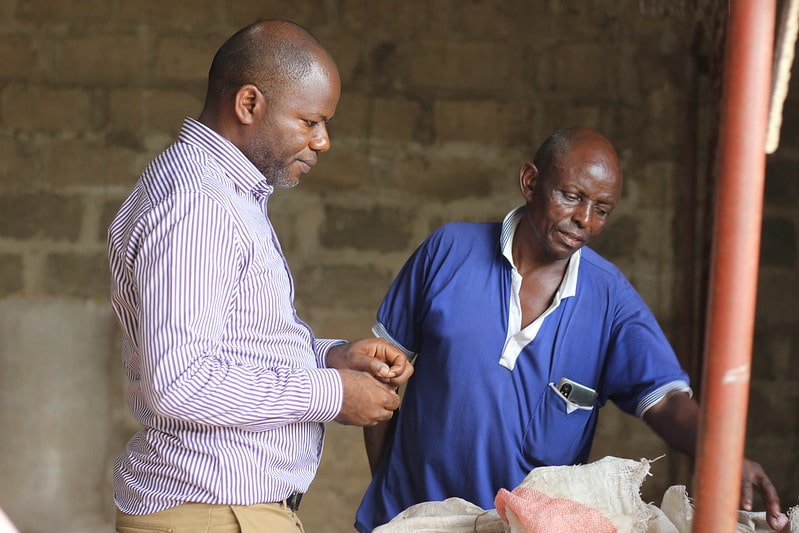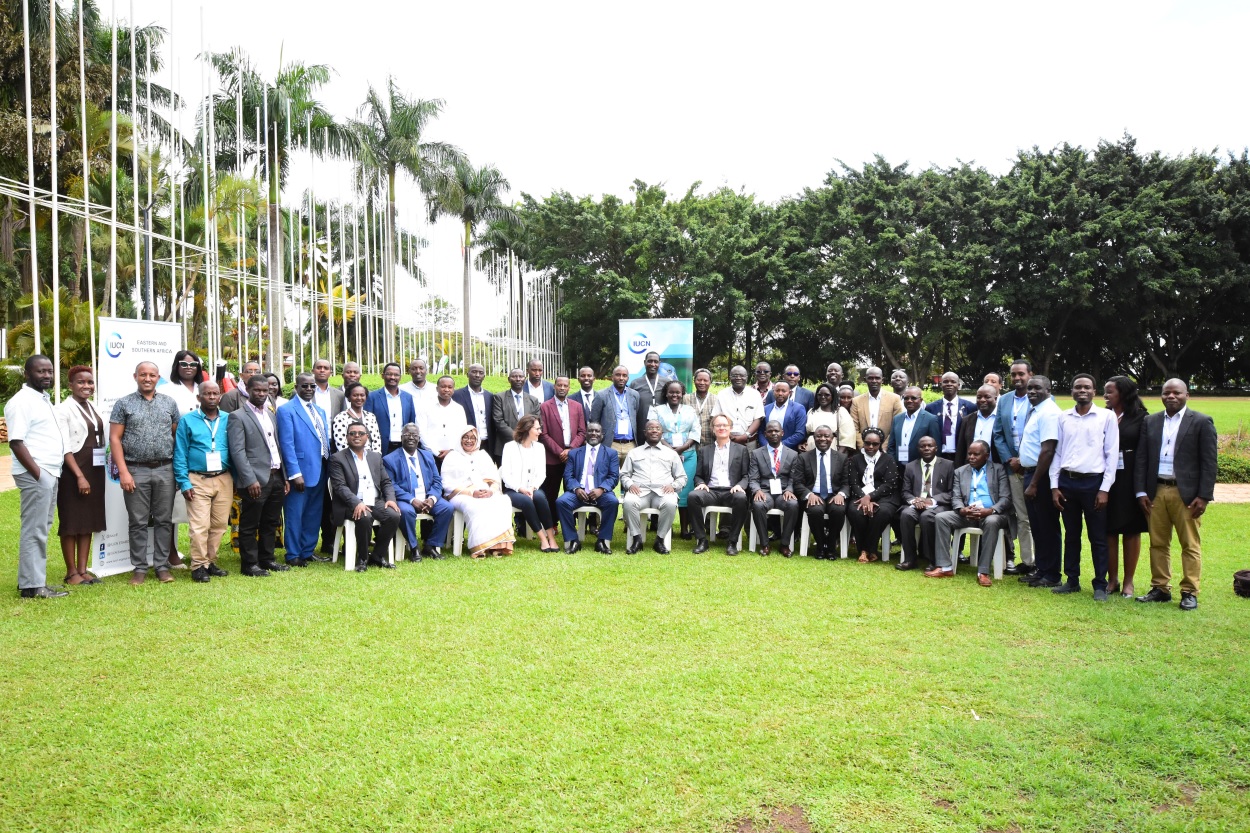SUSTAIN Eco, a new project aiming to balance sustainability with growth in Tanzania, launched
The Vice President’s Office of the United Republic of Tanzania, the Embassy of Sweden in Tanzania, and the International Union for Conservation of Nature (IUCN) have

Mbeya, Tanzania | 23 May 2023
The Vice President’s Office of the United Republic of Tanzania, the Embassy of Sweden in Tanzania, and the International Union for Conservation of Nature (IUCN) have
Today’s launch introduced SUSTAIN Eco to relevant institutions and potential partners in Tanzania while seeking political support and commitment for its implementation. The event helped build a shared understanding with key partners on implementation priorities in the Kilombero and Sumbawanga Landscapes. It brought together more than 50 delegates representing the Government, Development Partners, CSOs, the private sector, research, farmers, academia and the media.
SUSTAIN Eco will help demonstrate how ecosystems and solutions deriving from nature are vital for climate resilience and economic development. It will also deliver inclusive, sustainable business and livelihood opportunities to local communities. The project forms an important collaboration between the Government of Sweden, IUCN and its partners SNV and the African Wildlife Foundation (AWF) in scaling up SUSTAIN in Morogoro (Kilombero landscape), Rukwa and Katavi (Sumbawanga landscape) within the Southern Agricultural Growth Corridor of Tanzania and will run initially for a 3-year period (2023-2025).
SUSTAIN builds on the partnerships established from 2014-2020 in a first phase of the programme, ensuring continuity and aiming at long-term sustainability. SUSTAIN Phase I was able to achieve enhanced area-based conservation by supporting the establishment of Kalambo Nature Reserve, upgrading of Magombera forest to Nature Reserve, increased productivity within sugarcane and rice production systems as well as enhanced landscape governance through empowering local communities and establishing multi-stakeholder platforms.
SUSTAIN Eco is a sister programme to SUSTAIN Productive landscapes for inclusive growth; a programme funded by the Government of Norway, which aims to support sustainable food systems and healthy productive landscapes in Tanzania and Mozambique.
Tanzania is characterised by rich and diverse terrestrial and marine ecosystems. However, a recent assessment by the Vice President’s Office (2018) indicates land degradation has increased to 50%, from 42% in the 1980s and overall, 63% of land in Tanzania is degraded at various severity due to poor farming practices, deforestation, overgrazing, loss of vegetation cover, soil erosion and soil pollution. This environmental degradation has caused biodiversity loss and disruption of ecosystem services and functions such as soil fertility, provision of fish and wildlife habitats, water and air purification.
Speaking at the launch of SUSTAIN Eco, Ms. Mary Maganga, Permanent Secretary, Vice President’s Office represented by the Deputy Permanent Secretary (Union), Mr Abdallah Mitawi, said: “Good management of the environment is not just a personal responsibility, it is a public value. A healthy ecology is the basis for a healthy economy, let us join the efforts to save our planet, lift people out of poverty and accelerate Tanzania’s economic growth
“Tanzania’s population is rapidly growing. Natural resources allow people to earn a living and that same biodiversity is needed both for the livelihoods of future generations and for ecosystem services. We need to bring communities, government and the private sector together to tackle this.” said Her Excellency the Ambassador of Sweden in Tanzania, Charlotta Ozaki
“This investment makes an important contribution to tackling the biodiversity crisis, whilst enhancing the climate resilience of communities in Tanzania. IUCN together with AWF and SNV commit to working with the Government, local communities and businesses to protect and restore ecosystems in ways that maintain their capacity to support human well-being now and, in the future”. said Charles Oluchina, IUCN Tanzania Country Representative.
ENDS
For further information, please contact:
IUCN Tanzania: Anthony Mhagama | anthony.mhagama@iucn.org
SNV | Richard Bruno | rbruno@snv.org
AWF: Clarence Msafiri | cmsafiri@awf.org
Embassy of Sweden: Daniel Tiveau | Daniel.Tiveau@gov.se



